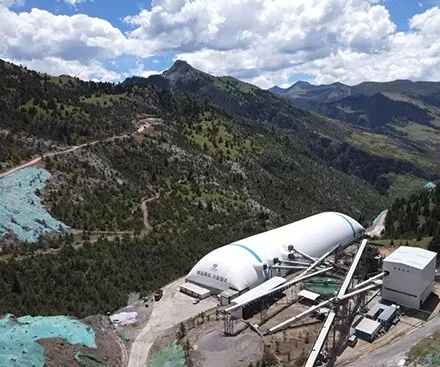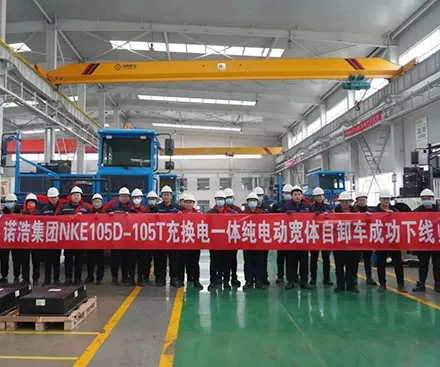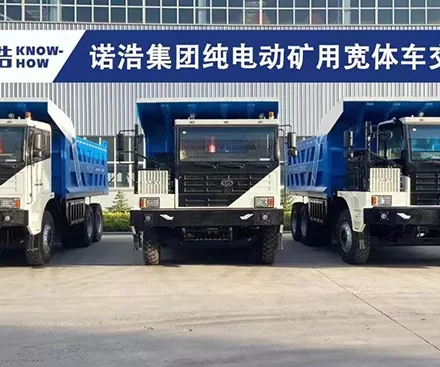Excavators and wheel loaders stand as indispensable earthmoving equipment on construction sites, each boasting unique capabilities. These machines play crucial roles in enhancing operational efficiency and productivity across various tasks. To determine which suits your project best, let's delve into the distinctive features of these robust earthmovers.
An excavator, a formidable machine with multifaceted applications, finds utility in construction, mining, and agriculture. Featuring tracks, a dipper, and a boom, it executes diverse functions such as digging, trenching, and demolition tasks. The hydraulic system powers the arm and bucket in tandem, amplifying their impact on earthmoving projects significantly.
Excavators showcase remarkable versatility, operating seamlessly in a 360-degree range, making them ideal for handling rocks and dirt. Their tracks facilitate easy navigation across challenging terrains, ensuring no debris is left behind during the transfer from one location to another.
Available in various sizes, from mini excavators to heavy-duty models, and diverse types like dragline excavators and suction excavators, they cater to different project requirements, including underground excavation without surface damage.
In contrast, wheel loaders emerge as the workhorses of construction sites, primarily tasked with moving loads such as dirt or loose materials from one point to another. Equipped with large wheels for traction on damp surfaces, these loaders are celebrated for their mobility and the substantial loads they can carry. The bucket of a wheel loader surpasses that of an excavator, making them the preferred choice for handling large masses.
Wheel loaders come in varied sizes, ranging from small to large, and their front and rear axles allow them to support substantial weight. While they can engage in digging tasks, it's not their primary function, setting them apart from excavators.
The key distinction between excavators and wheel loaders lies in their primary purposes. Wheel loaders excel at efficiently moving materials, thanks to their larger bucket capacity. Excavators, on the other hand, shine in breaking ground but fall short in transporting large quantities of material. Often, these two machines collaborate on construction sites, with the excavator digging and the wheel loader transferring materials, creating a symbiotic partnership.
While wheel loaders are adept at pushing and pulling loads, their versatility pales in comparison to excavators, which boast 360-degree operating flexibility. This advantage proves invaluable when navigating challenging terrains or entering confined spaces where straight-line or right-angle movements are impractical.
In the process of selecting the most suitable equipment for your operations, there are several key questions to consider in order to determine the optimal choice. So, which one is the right fit for you? The answer truly hinges on the nature of the work being undertaken and the specific requirements of your worksite.
Your worksite's primary function plays a pivotal role in determining whether you need an excavator, a wheel loader, or a combination of both. If your primary task involves digging out relatively small amounts of dirt, such as creating a swimming pool, an excavator is the ideal choice due to its precision in excavation tasks.
On the other hand, if your operations involve handling large quantities of dirt and debris, like excavating an underground car park, a wheel loader becomes the more efficient option. In many cases, larger construction projects benefit significantly from having both machines available to maximize overall efficiency.
Consider the dump height needed for your project, as it can influence your decision between an excavator and a wheel loader. Excavators boast a higher dump height, providing operators with enhanced visibility during material disposal. This contributes to improved accuracy in the dumping process.
While wheel loaders have a lower dump point, making them potentially more challenging to operate, their dump height is still sufficient for transporting materials into large bins or tipper trucks.
When operating on a strict budget and faced with the choice of one machine over the other, considering ongoing maintenance costs is essential. Both excavators and wheel loaders are built to endure heavy workloads, but differences in maintenance costs arise.
Wheel loaders, with their wheel-centric design, may require approximately 50% of the maintenance budget for wheel replacements. Excavators, equipped with tracks, tend to incur lower wear and tear costs in case repairs are needed. However, both machines involve maintenance considerations due to their moving parts.
The characteristics of your workspace significantly influence the choice between an excavator and a wheel loader. Despite their often larger size, excavators excel in compact spaces due to their 360-degree movement capability. Once in position, their flexibility minimizes the need for frequent relocations.
In contrast, wheel loaders, with their front-only operation, demand more space for efficient maneuvering. The need for easy turnaround further increases the spatial requirements, making excavators more favorable for projects in confined areas.
The choice between an excavator and a wheel loader also hinges on your project's bucket capacity needs. Wheel loaders boast a substantially higher bucket capacity, making them ideal for projects that prioritize the efficient movement of large amounts of material.
Excavators, designed primarily for digging, feature smaller bucket sizes, offering greater capacity for specialized tasks such as digging trenches and drains. However, their efficiency diminishes when transporting large quantities of materials, where wheel loaders with wider buckets and added weight capacity shine.
Excavators and wheel loaders stand as indispensable tools in construction, each bringing its unique strengths to the table. The decision between the two depends on the intricacies of your project, and in many cases, having both machines proves to be the most efficient approach.
While excavators offer flexibility, especially in smaller spaces, the broader functionality of wheel loaders makes them valuable for handling large-scale material movement. If budget constraints necessitate choosing only one, the versatility of an excavator, capable of both digging and material transport, often positions it as the prudent choice.
In essence, excavators and wheel loaders complement each other in the construction landscape. The key lies in understanding the specific demands of your project, aligning them with the strengths of each machine, and achieving a harmonious blend of digging power and material-handling prowess.

Jul. 23, 2022
View More
Jun. 15, 2022
View More
Jun. 01, 2022
View More